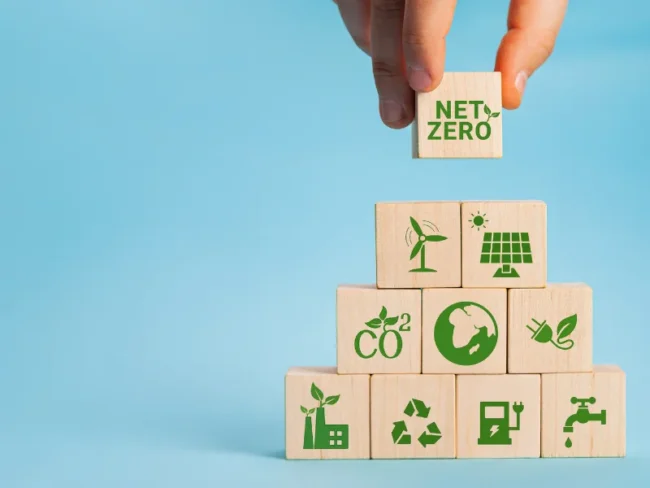As the world grapples with the effects of climate change, transitioning to a low-carbon economy is emerging as both an environmental necessity and an economic opportunity. This shift involves reducing greenhouse gas emissions, adopting renewable energy sources, and embracing sustainable practices. The transition not only helps combat climate change but also offers substantial economic benefits. In this article, we will explore how moving towards a low-carbon economy can drive economic growth, create jobs, and lead to a more resilient and sustainable future.

What is a Low-Carbon Economy?
A low-carbon economy is one that minimizes carbon dioxide emissions and other greenhouse gases through sustainable practices and energy-efficient technologies. This involves increasing the use of renewable energy sources like wind, solar, and hydro power, improving energy efficiency across various sectors, and promoting sustainable transportation and agriculture.
Economic Benefits of Transitioning to a Low-Carbon Economy
1. Job Creation
Transitioning to a low-carbon economy can create a multitude of jobs across various sectors. Investments in renewable energy infrastructure, energy efficiency retrofits, and green technology development require a skilled workforce. Jobs in solar panel installation, wind turbine maintenance, and energy-efficient building construction are just a few examples of the employment opportunities that arise from this transition.
Fact: The renewable energy sector alone employed over 11 million people globally in 2023, and this number is expected to grow as more countries invest in clean energy.
2. Economic Growth and Innovation
Investing in low-carbon technologies can drive economic growth and stimulate innovation. The development of new technologies and the expansion of clean energy markets can lead to increased productivity and competitiveness. Countries that lead in green technology innovation can gain a competitive edge in the global market, attracting investments and boosting their economies.
Pro Tip: Supporting research and development in clean technologies can enhance a country’s position as a leader in the global green economy.
3. Energy Independence and Security
A low-carbon economy often involves increasing the use of renewable energy sources, which can reduce reliance on imported fossil fuels. By harnessing local renewable resources, countries can achieve greater energy independence and enhance their energy security. This reduces vulnerability to global energy price fluctuations and supply disruptions.
Insight: Countries that invest in renewable energy infrastructure can also benefit from stable energy prices and reduced exposure to geopolitical risks associated with fossil fuel dependence.
4. Health Benefits and Reduced Healthcare Costs
Reducing greenhouse gas emissions and air pollution can have significant health benefits. Improved air quality leads to fewer respiratory and cardiovascular diseases, which in turn reduces healthcare costs. The economic savings from lower healthcare expenses can be redirected towards other important sectors, such as education and infrastructure.
Fact: Studies have shown that transitioning to cleaner energy sources can reduce health care costs by billions annually due to decreased air pollution.
5. Resilience to Climate Change
A low-carbon economy enhances resilience to the impacts of climate change. By investing in climate adaptation measures and sustainable infrastructure, countries can better withstand extreme weather events, rising sea levels, and other climate-related challenges. This reduces the economic costs associated with climate damage and supports long-term economic stability.
Pro Tip: Building resilient infrastructure and promoting sustainable practices can protect communities from the economic impacts of climate-related disasters.
Strategies for Transitioning to a Low-Carbon Economy
1. Promote Renewable Energy Investments
Investing in renewable energy sources such as wind, solar, and hydro power is crucial for reducing carbon emissions and driving economic growth. Governments and businesses should support policies and incentives that encourage the development and deployment of clean energy technologies.
Insight: Financial incentives, such as tax credits and subsidies, can accelerate the adoption of renewable energy and make it more competitive with fossil fuels.
2. Support Energy Efficiency Programs
Improving energy efficiency across various sectors, including transportation, buildings, and industry, can lead to significant cost savings and emission reductions. Implementing energy-efficient technologies and practices can also create job opportunities and boost economic activity.
Pro Tip: Energy efficiency standards and retrofitting programs can help businesses and homeowners reduce energy consumption and lower utility bills.
3. Encourage Sustainable Practices
Promoting sustainable practices in agriculture, manufacturing, and other industries can reduce carbon emissions and improve resource management. Encouraging practices such as sustainable farming, waste reduction, and circular economy principles can drive economic benefits while protecting the environment.
Fact: Adopting sustainable practices can lead to cost savings, improved resource efficiency, and enhanced competitiveness in the market.
4. Invest in Green Technology and Innovation
Supporting research and development in green technologies can drive innovation and economic growth. Governments and private sectors should invest in cutting-edge technologies that can reduce carbon emissions, improve energy efficiency, and create new market opportunities.
Pro Tip: Collaboration between governments, businesses, and research institutions can accelerate the development and deployment of innovative green technologies.
COMMENTS